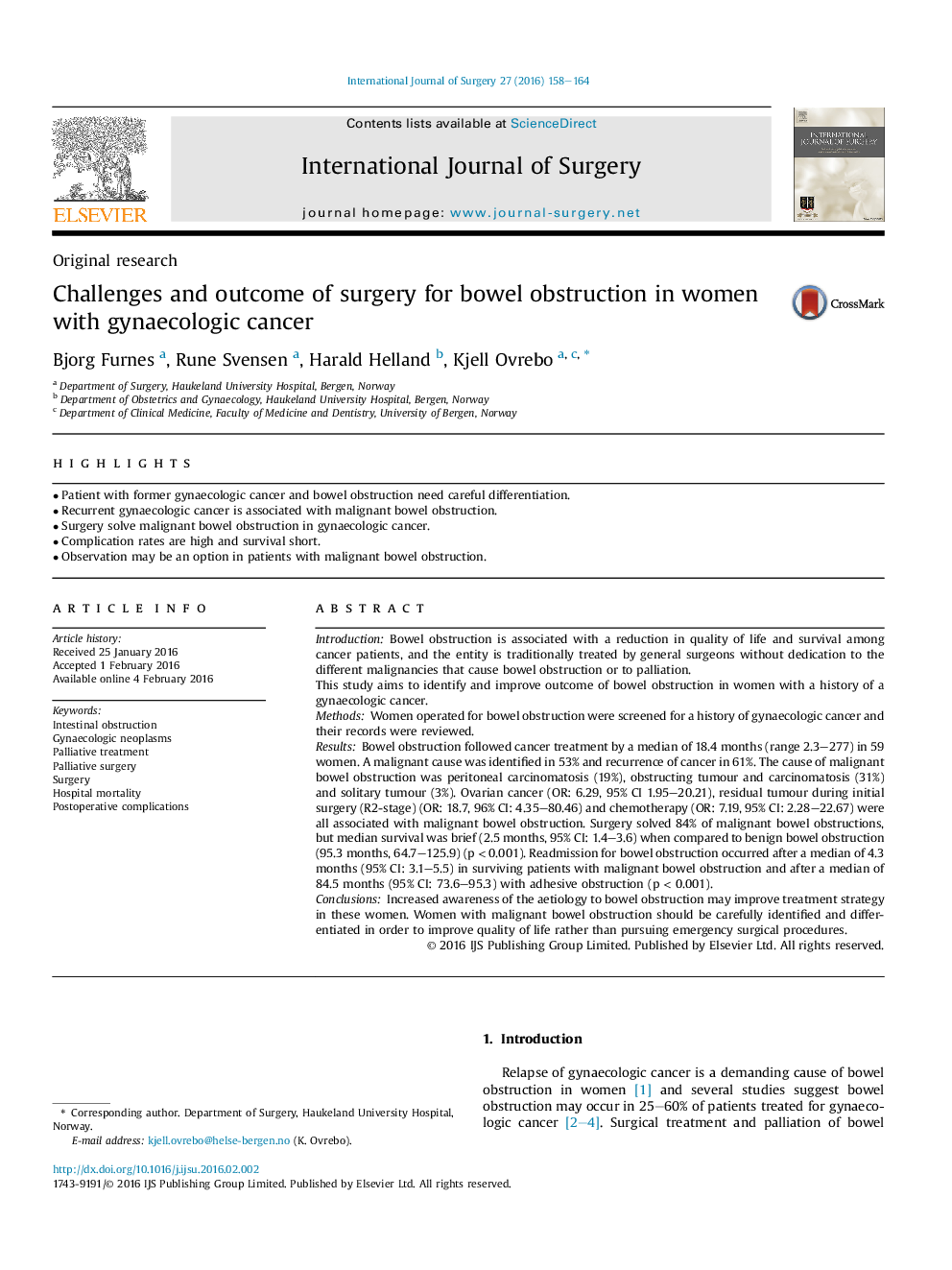| Article ID | Journal | Published Year | Pages | File Type |
|---|---|---|---|---|
| 4285512 | International Journal of Surgery | 2016 | 7 Pages |
•Patient with former gynaecologic cancer and bowel obstruction need careful differentiation.•Recurrent gynaecologic cancer is associated with malignant bowel obstruction.•Surgery solve malignant bowel obstruction in gynaecologic cancer.•Complication rates are high and survival short.•Observation may be an option in patients with malignant bowel obstruction.
IntroductionBowel obstruction is associated with a reduction in quality of life and survival among cancer patients, and the entity is traditionally treated by general surgeons without dedication to the different malignancies that cause bowel obstruction or to palliation.This study aims to identify and improve outcome of bowel obstruction in women with a history of a gynaecologic cancer.MethodsWomen operated for bowel obstruction were screened for a history of gynaecologic cancer and their records were reviewed.ResultsBowel obstruction followed cancer treatment by a median of 18.4 months (range 2.3–277) in 59 women. A malignant cause was identified in 53% and recurrence of cancer in 61%. The cause of malignant bowel obstruction was peritoneal carcinomatosis (19%), obstructing tumour and carcinomatosis (31%) and solitary tumour (3%). Ovarian cancer (OR: 6.29, 95% CI 1.95–20.21), residual tumour during initial surgery (R2-stage) (OR: 18.7, 96% CI: 4.35–80.46) and chemotherapy (OR: 7.19, 95% CI: 2.28–22.67) were all associated with malignant bowel obstruction. Surgery solved 84% of malignant bowel obstructions, but median survival was brief (2.5 months, 95% CI: 1.4–3.6) when compared to benign bowel obstruction (95.3 months, 64.7–125.9) (p < 0.001). Readmission for bowel obstruction occurred after a median of 4.3 months (95% CI: 3.1–5.5) in surviving patients with malignant bowel obstruction and after a median of 84.5 months (95% CI: 73.6–95.3) with adhesive obstruction (p < 0.001).ConclusionsIncreased awareness of the aetiology to bowel obstruction may improve treatment strategy in these women. Women with malignant bowel obstruction should be carefully identified and differentiated in order to improve quality of life rather than pursuing emergency surgical procedures.
